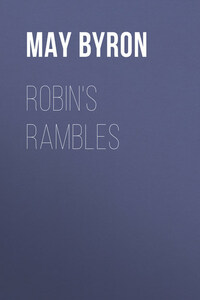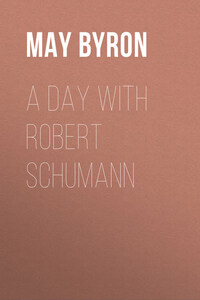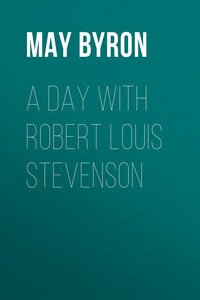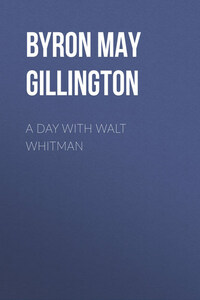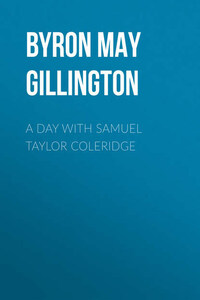A DAY WITH WILLIAM SHAKESPEARE
IT was early on a bright June morning of the year 1599. The household of Christopher Mountjoy, the wig-maker, at the corner of Silver Street in Cripplegate, was already up and astir. Mountjoy, his wife and daughter, and his apprentice, Stephen Bellott, were each refreshing themselves with a hasty mouthful – one could not term it breakfast – before beginning their day's work. For town wig-makers were busy folk, then as now. Every fashionable dame wore "transformations," and some noble ladies, like the late Queen of Scots and – breathe it low – the great Elizabeth herself, changed the colour of their tresses every day.
Breakfast, in 1599, was a rite "more honoured in the breach than in the observance." Most people, having supped with exceeding heartiness the previous night, ignored breakfast altogether: especially as dinner would occur some time between 10 and 12 a.m. Those who could not go long without food had no idea of a regular sit-down meal during that precious morning hour which "has a piece of gold in its mouth." They contented themselves with beaten-up eggs in muscadel wine, as now the Mountjoy family; who, being of French origin, boggled somewhat at the only alternative – a very English one – small ale and bread-and-butter.
To these good folk, standing up and swallowing their morning draught, entered their well-to-do lodger, Mr. William Shakespeare, up betimes like them – for he was a very busy person, – and shared their jug of eggs and muscadel. Mr. Shakespeare was thirty-five years of age, "a handsome, well-shap't man," in the words of his friend Aubrey, – his eyes light hazel, his hair and beard auburn. He still retained, in some degree, the complexion which accompanies auburn hair, and this imparted a tinge of delicacy to his sensitive and mobile face. He was already slightly inclined to embonpoint: for in the seventeenth century people aged soon, and thirty-five was much more like forty-five nowadays.
In all company, with all people, Shakespeare was charmingly pleasant-spoken. He had long since shed any provincial gaucherie, and was of an exquisite courtesy, "of a very ready and pleasant smooth wit," – again to quote his intimates, "a good-natured man, of a great sweetness in his bearing, and a most agreeable company." Moreover, that indefinable ease of bearing, which accrues with success, was evident in the gracious bonhomie of his mien. For, after many years of stress and struggle, many hard bouts with fortune, innumerable humiliations and adverse events, he was now prosperous, popular, possessed of this world's goods. Although a self-made man in every sense of the word, – although still a member of that despised theatrical profession against which the pulpit thundered, at which the decent citizen looked askance, – he was a distinctly marked personality, not to be ignored. He was part proprietor of the Globe Theatre, the Blackfriars, and the Rose, – he had house property in Southwark and Blackfriars, lands and houses at Stratford-upon-Avon. He had obtained a coat-of-arms for his family from the College of Heralds, thus constituting himself legally a "gentleman"; he was the brilliant author of immensely popular plays. And he was reputed to earn at the rate of £600 per annum – which would be now worth nearly eight times as much.
Such was the man who presently sauntered out into the summer sunlight, this June morning, and went leisurely westward towards Holborn. He strolled along, thoughtfully ruminating the day's work before him, but courteously alert to every greeting from passing acquaintances in the streets. He encountered, as he went, warm and invigorating scents, which floated round each corner – and rose, for the nonce, above the malodours of the open gutter – pleasant midsummer perfumes which were exhaled, in the clear and smokeless air of those days, from a multiplicity of blossoming London gardens. For every house had its private garden, large or small. Every householder garnished his dwelling-rooms with flowers, instead of ornaments of potter's ware or metal: the floors were still strewn with leaves and grasses, and the doorways often decked with boughs. Cherries and strawberries were ripening in the ancient monastery gardens, among the majestic precincts of ruined priories: blackbirds were singing in the trees. If the actual dewy freshness of the Warwickshire water-meadows were not present in the London air – if the wild roses of the Avon-side did not bloom in Holborn – yet Shakespeare had only to close his eyes one moment, to project himself back into his boyhood's scenes. For London was emphatically a "garden city," encircled by forests, and fields, and farms, and wooded hills; and the ecstatic sweetness of an English June was wafted over its cobbled thoroughfares.
Of all seasons, this was the most enjoyable to Shakespeare – because of his passion for flowers. He delighted to make long luscious lists of flowers – their very names were a pleasure to him, each fraught with its own special significance. He loved to write of

